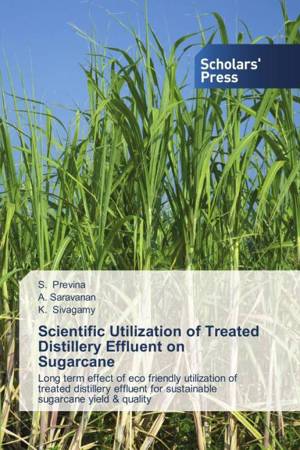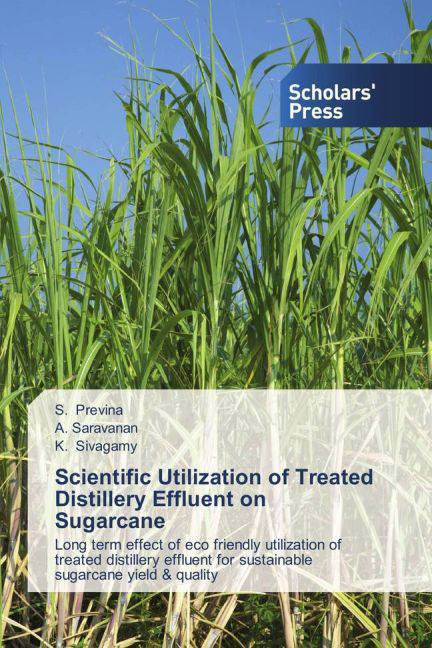
- Afhalen na 1 uur in een winkel met voorraad
- Gratis thuislevering in België vanaf € 30
- Ruim aanbod met 7 miljoen producten
- Afhalen na 1 uur in een winkel met voorraad
- Gratis thuislevering in België vanaf € 30
- Ruim aanbod met 7 miljoen producten
Zoeken
Scientific Utilization of Treated Distillery Effluent on Sugarcane
S Previna, A Saravanan, K Sivagamy
Paperback | Engels
€ 93,95
+ 187 punten
Omschrijving
Sugarcane producing countries running sugar industries and apart from the sugar and alcohol, these factories generate many by-products and waste materials like solid waste (press mud), molasses and bagasse. The effluent in distillery industry plays a prime role in bridging the gap between the depletion and repletion by its inherent potential of high organic carbon and nutrient contents. Although the distillery effluent utilization in agriculture has augmented the crop yields, its unscientific and unsystematic use causes degradation of land and the environment. To harmless its full manurial potential, there is a recommendation of one time land application and distillery effluent through irrigation water as a source of plant nutrients for sugarcane crop and also to sustain the soil health. Thus, wherever there is uncontrolled discharge of distillery effluent, the environment is aesthetically unpleasant. Scientific utilization of distillery effluent in agriculture would save costs on fertilizers and facilitate reduction in pollution load on the environment and also improve the overall soil health.
Specificaties
Betrokkenen
- Auteur(s):
- Uitgeverij:
Inhoud
- Aantal bladzijden:
- 288
- Taal:
- Engels
Eigenschappen
- Productcode (EAN):
- 9783639700558
- Verschijningsdatum:
- 16/10/2013
- Uitvoering:
- Paperback
- Formaat:
- Trade paperback (VS)
- Afmetingen:
- 152 mm x 229 mm
- Gewicht:
- 426 g

Alleen bij Standaard Boekhandel
+ 187 punten op je klantenkaart van Standaard Boekhandel
Beoordelingen
We publiceren alleen reviews die voldoen aan de voorwaarden voor reviews. Bekijk onze voorwaarden voor reviews.











